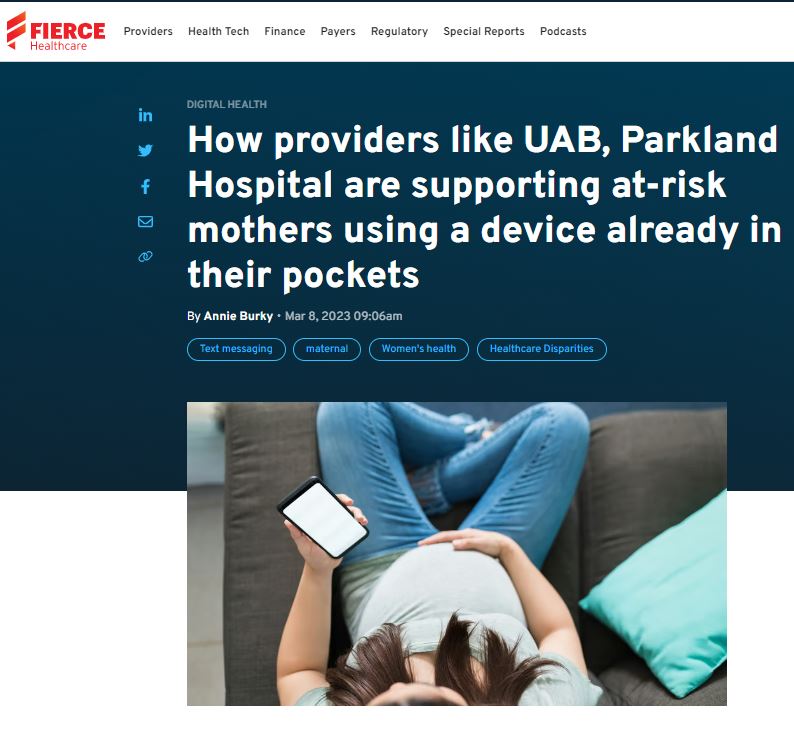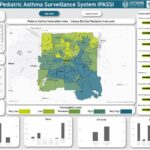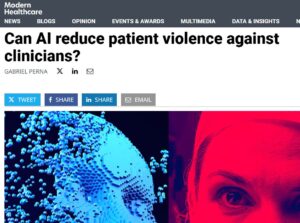

FierceHealthcare, a top national healthcare trade publication, has published an article that includes PCCI experts discussing our preterm birth prevention program. The article, “How providers like UAB, Parkland Hospital are supporting at-risk mothers using a device already in their pockets” includes quotes from Dr. Yolande Pengetnze. Read the whole story here: https://www.fiercehealthcare.com/digital-health/providers-utilize-sms-text-messages-tackle-continuing-maternal-health-crisis
Here are highlights of the article:
Parkland Center for Clinical Innovation (PCCI) and Parkland Hospital in Dallas developed their own program enrolling at-risk patients in a text reminder program. The program’s main goal is decreasing preterm delivery in at-risk pregnant patients. PCCI determined which patients to enroll by using social determinants of health data.
Text messages varied from reminders to arrive at appointments with a list of questions, to take prenatal vitamins and to place seatbelts over the hips instead of the belly. Text reminders changed as patients progressed through pregnancy with notifications in the third month of pregnancy from informing parents that their baby was the size of a peach, to late-term reminders directing patients to ask their doctor about early signs of labor.
PCCI screened 13,000 women for social determinants of health, hypertension, diabetes and mental health risks. Of the enrolled women, preterm delivery decreased by 20%, prenatal doctor visits increased by 8% and costs decreased by 6%.
Yolande Pengetnze, M.D., a pediatrics specialist and program manager of the preterm prevention program, told Fierce Healthcare that 85% of participants preferred texts when receiving prenatal healthcare advice and 74% said the program made them better prepared for parenthood. “We needed a solution that patients could use with one hand because they have a baby in the other,” Pengetnze said.
“A lot of confusing and conflicting information is communicated on social media and that is where patients are going for advice,” Pengetnze said. “The social fabric has changed and people don’t have the same at-home support as they once did. New parents need all sorts of advice from how to feed their baby to what to ask their doctor.”
##






